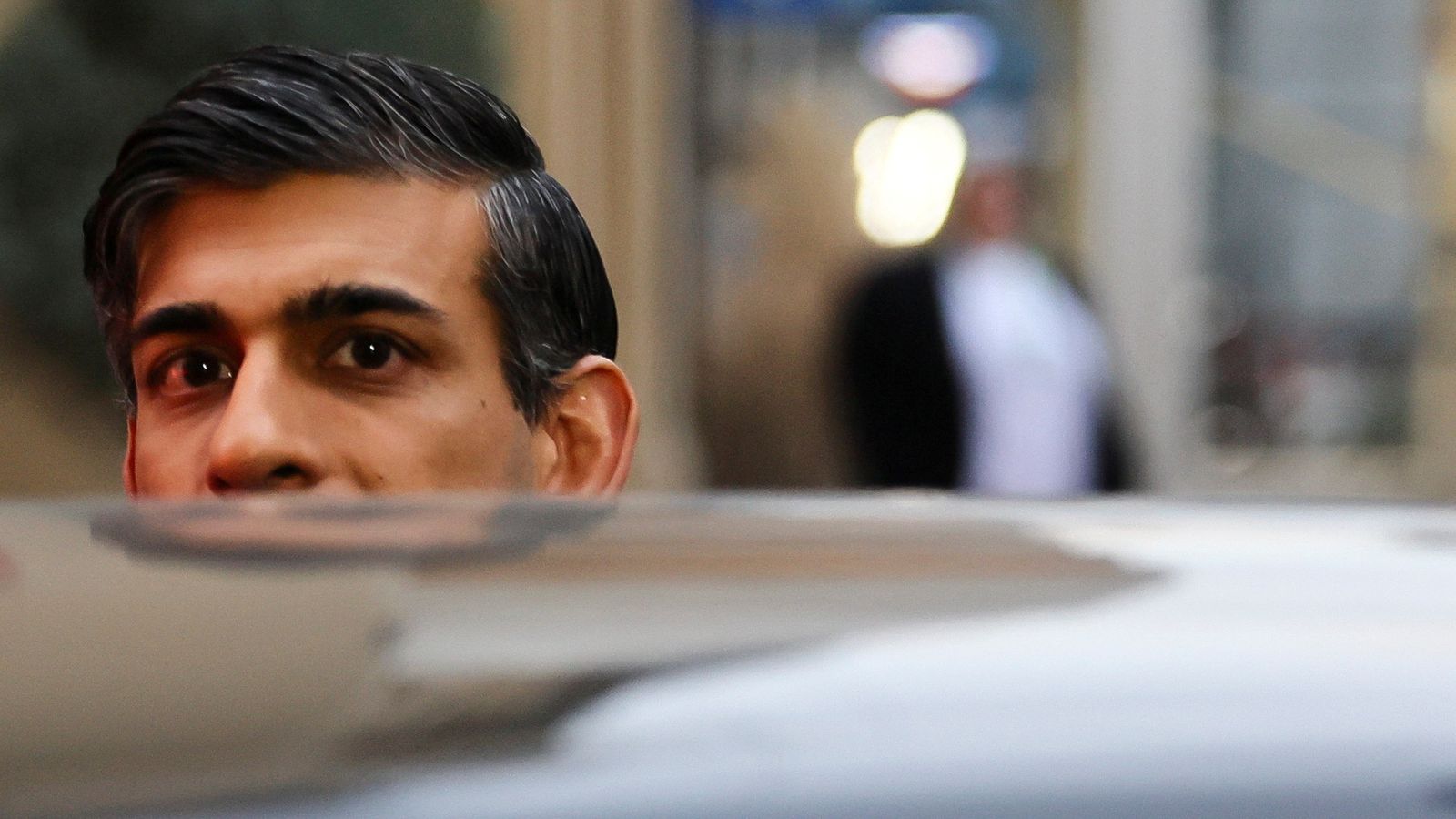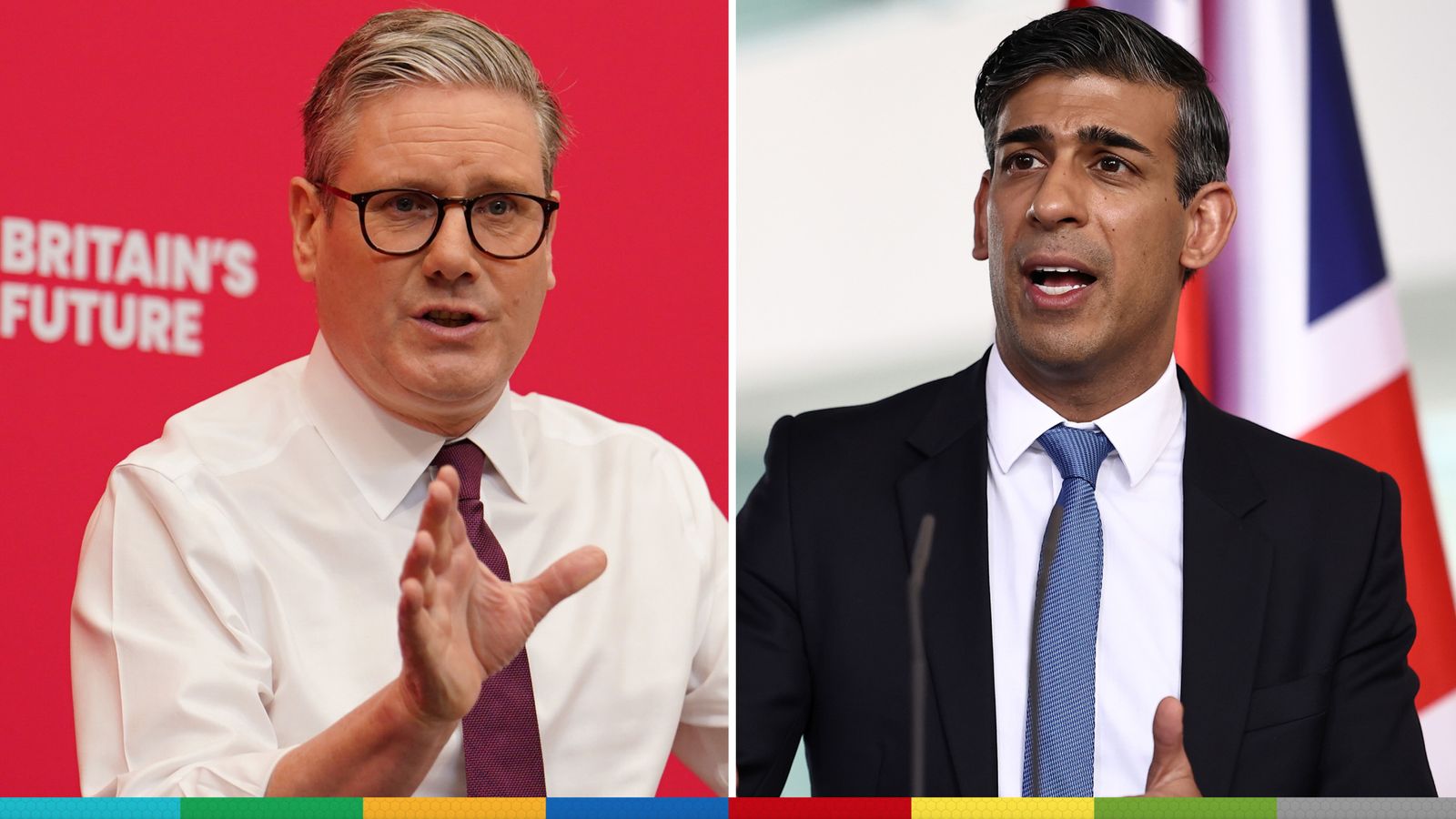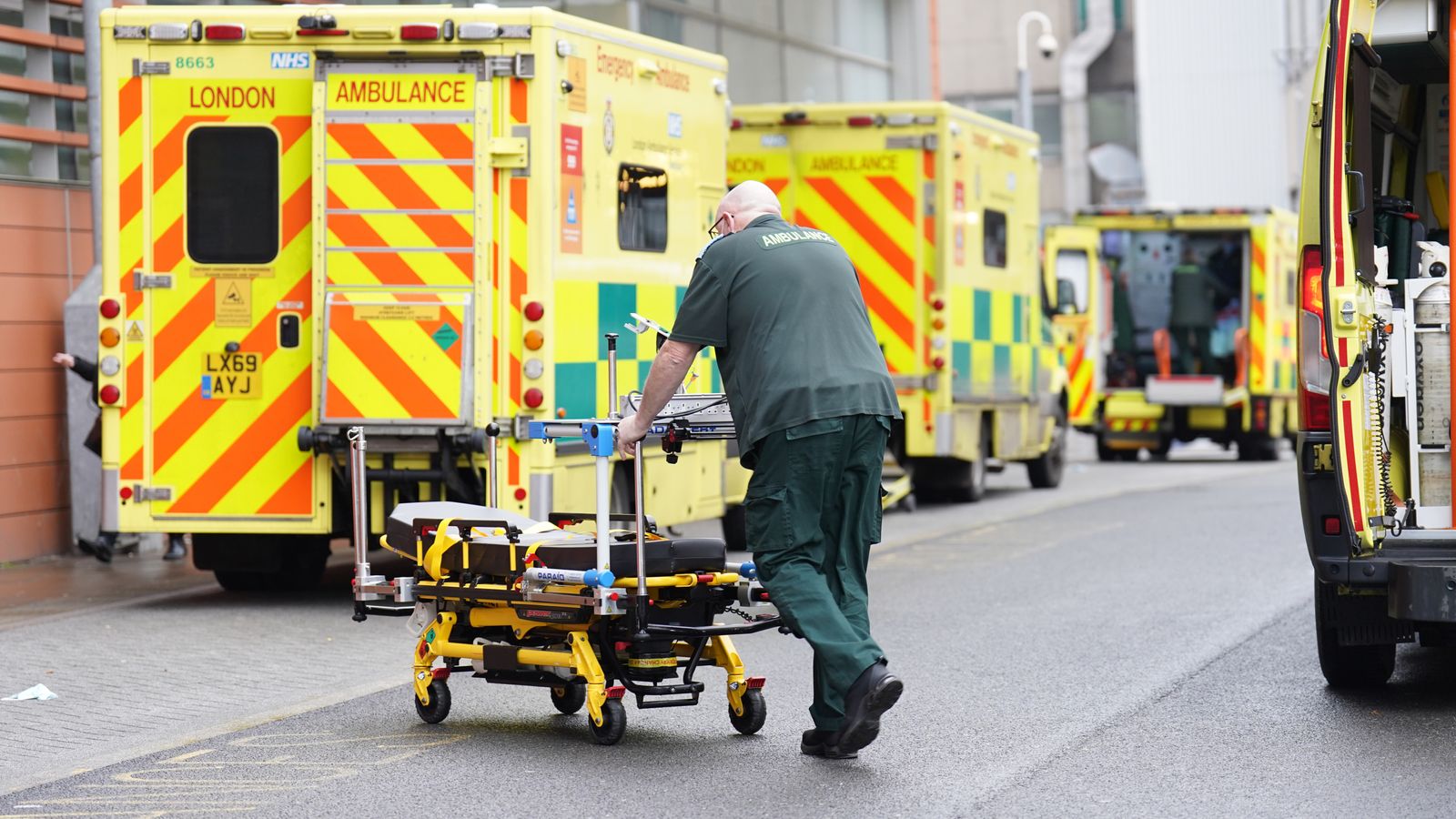Rishi Sunak has said it was “wrong to empower scientists” during the pandemic and claimed lockdown “trade-offs” were never properly discussed.
In an interview for The Spectator on the “inside story of lockdown”, the former chancellor attacked the Scientific Advisory Group for Emergencies (SAGE) for having too much influence over government decision-making during the COVID crisis.
He claims he was banned from discussing the negative side-effects of the draconian restrictions the nation lived under, such as the NHS backlog and exams chaos, and that minutes of SAGE meetings often edited out dissenting voices.
He said decisions during the pandemic were typically reached after ministers were shown gloomy scientific analysis pointing to horrifying “scenarios” that would come to pass if lockdown was not imposed or extended, but it was not clear “how these all-important scenarios had been calculated”.
Politics Hub: Minister pours cold water on cost of living help suggestion
Mr Sunak said: “We didn’t talk at all about missed [doctor’s] appointments, or the backlog building in the NHS in a massive way. That was never part of it.
“Whoever wrote the minutes for the SAGE meetings – condensing its discussions into guidance for government – would set the policy of the nation. No one, not even cabinet members, would know how these decisions were reached.”
The Tory leadership hopeful suggested that No 10’s desperation to present its policies as “following the science” meant SAGE was given too much power to make decisions, and that this was a mistake.
“We shouldn’t have empowered the scientists in the way we did,” he said.
“And you have to acknowledge trade-offs from the beginning. If we’d done all of that, we could be in a very different place. We’d probably have made different decisions on things like schools.”
It comes as thousands of teenagers across the country are due to receive their GSCE results on Thursday, after having their education disrupted for much of the past two years.
Mr Sunak claims at times he became “very emotional” about the impact of closing schools – but that his concerns were met with silence from colleagues.
He claimed he “wasn’t allowed to talk about” his fears in public, and ministers were briefed on how to handle questions about the socio-economic impact of lockdown.
He said: “The script was not to ever acknowledge them. The script was: oh, there’s no trade-off, because doing this for our health is good for the economy.”
Mr Sunak, who resigned from Boris Johnson’s government last month, said he didn’t quit over his differences during the pandemic as that would not have been “responsible” given the crisis the nation faced.
He said he is opening up now not just because of the Tory leadership race, but because lessons must be leant on “how important questions about lockdown’s knock-on effect were never properly explored”.
He said the public were being scared by scientists and the government “helped shape that: with the fear messaging”.
Mr Sunak has previously claimed he flew back from the US early to stop another lockdown being imposed when the Omicron variant spread last winter.
With just two weeks to go until a new prime minister is chosen, he is seeking to make up ground on rival Liz Truss, who he is trailing in the polls.
His interview comes after allies of the foreign secretary attacked him for adopting a “scorched earth” policy that risks destroying the Conservative Party after he refused to say if he would vote for her tax cuts, according to a report in The Times.
Read More:
What have Rishi Sunak and Liz Truss pledged for the country?
Rishi Sunak hints he won’t take cabinet post if Liz Truss wins leadership race
A No10 spokesperson has defended the government’s record on the pandemic.
They said: “Throughout the pandemic, public health, education, and the economy were central to the difficult decisions made on COVID restrictions to protect the British public from an unprecedented novel virus.
“At every point, Ministers made collective decisions which considered a wide range of expert advice available at the time in order to protect public health.
“The UK government spent over £400bn to support people, families, and their livelihoods throughout our response to the pandemic, which included the fastest lifesaving vaccine rollout in Europe.”





